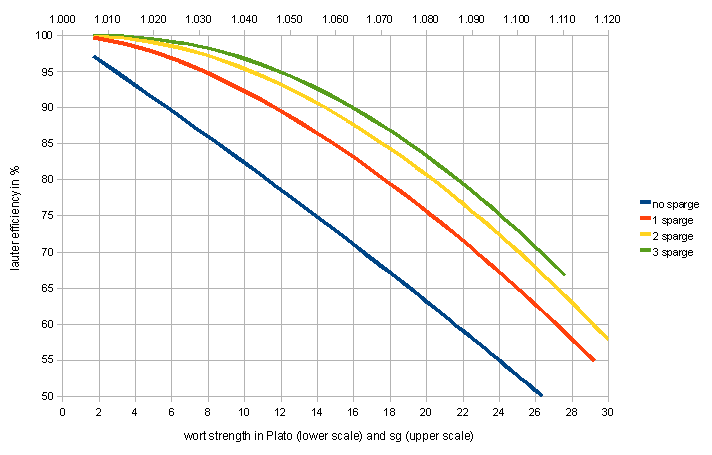I think fretting over a few efficiency points on the scale of most homebrewers is a complete waste of time, so that's the last thing I care about when deciding how to sparge. For starters, the difference in grain cost between 'great' efficiency and 'good' efficiency is hardly worth caring about. But of even greater importance - even if it were - we're not exactly engaged in a cost-effective enterprise here. By the time you add in all time & labor involved - homebrewing in general is far from efficient.
What we do have as an advantage, however, is the potential for quality. A quality that due to scale can easily exceed any commercial product so long as we do our part. So that's my goal: quality. Make the best damned beer possible.
IMO, batch sparging - and especially no-sparging - has the potential to make better beer. That's why it's my choice. Efficiency has nothing to do with it.
What we do have as an advantage, however, is the potential for quality. A quality that due to scale can easily exceed any commercial product so long as we do our part. So that's my goal: quality. Make the best damned beer possible.
IMO, batch sparging - and especially no-sparging - has the potential to make better beer. That's why it's my choice. Efficiency has nothing to do with it.












![Craft A Brew - Safale S-04 Dry Yeast - Fermentis - English Ale Dry Yeast - For English and American Ales and Hard Apple Ciders - Ingredients for Home Brewing - Beer Making Supplies - [1 Pack]](https://m.media-amazon.com/images/I/41fVGNh6JfL._SL500_.jpg)













































